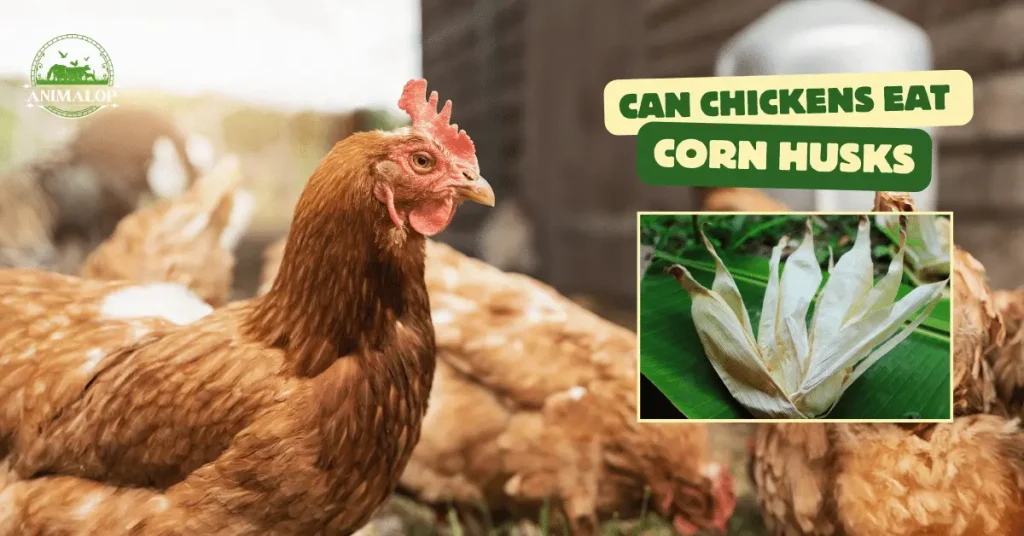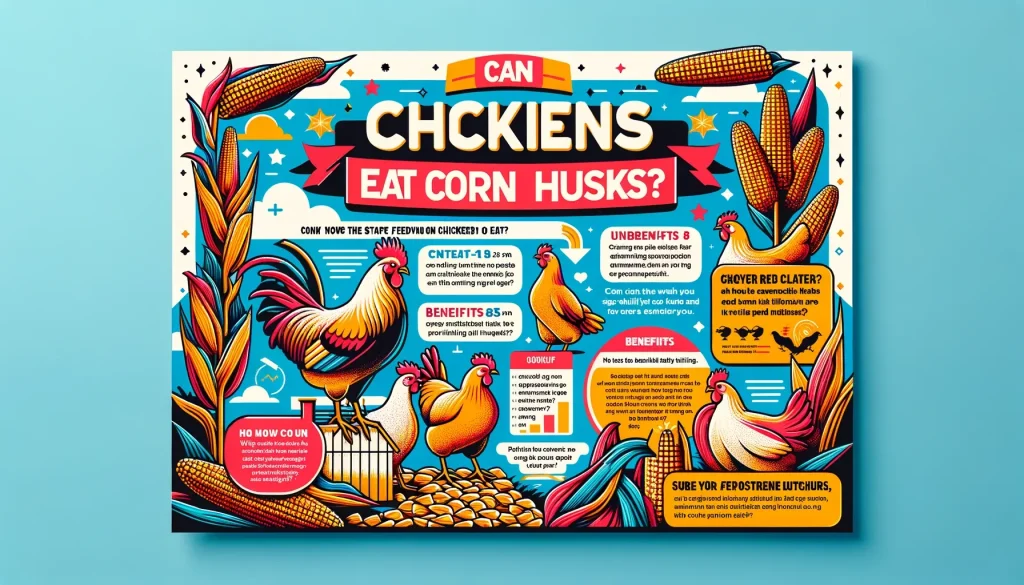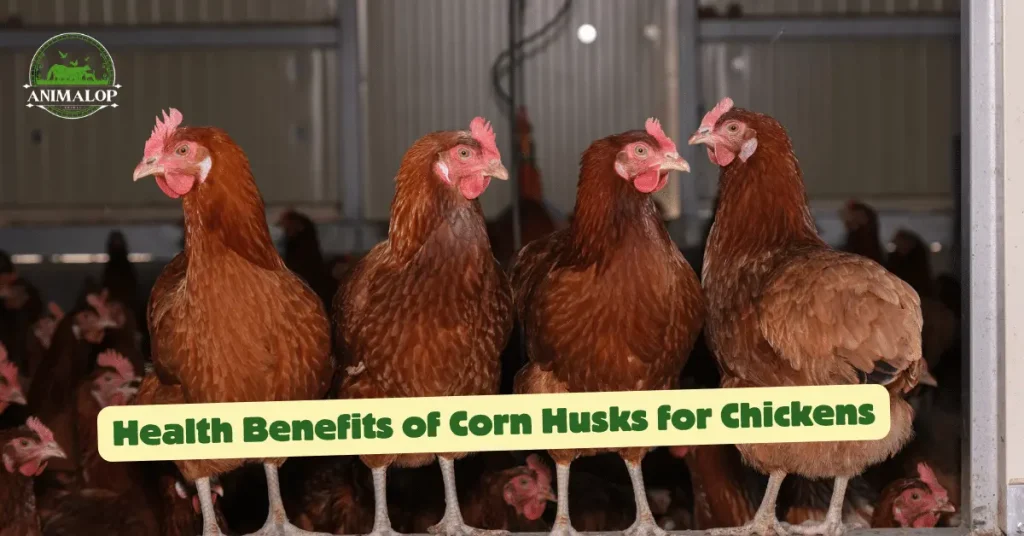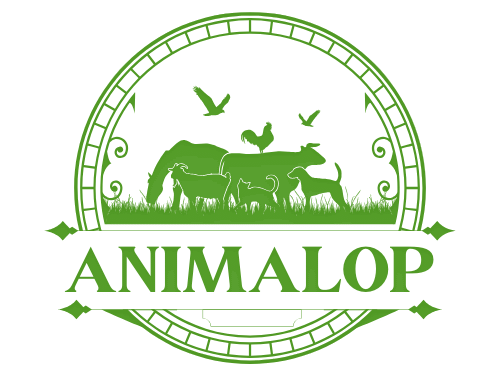Can Chickens Eat Corn Husks: Nutritional Benefits & Feeding Tips
If you have chickens, you know they eat pretty much anything, fitting their omnivore label. Chickens aren’t picky and will munch on a wide variety of things, including some that might surprise you.
They can eat all sorts of stuff, from weird to yucky and even things we might not think of as food, to get the energy and nutrients they need.
What about corns, though? Can chickens eat corn husks?

Chickens can eat corn husks without any problems, but only a little bit. They can get some energy and a bit of nutrition from them. But, corn husks don’t have all the nutrients chickens need. If chickens eat too many corn husks, they won’t get enough of the important nutrients from their regular food.
If you want to make use of all parts of a corn cob or keep your chickens entertained, you can give them corn husks. They’ll peck at them and stay busy. Can Chickens Eat Green Beans
Can Chickens Eat Corn Husks?
Corn is a popular crop around the world because it’s nutritious, easy to find, and cheap. Along with wheat and rice, corn is one of the main foods for many people.
Corn is a decent snack for chickens, and they can eat both the kernels and the husks. Corn is even used in chicken feed. You can feed chickens corn in different forms like cooked, ground, or raw.
However, just like people, chickens shouldn’t eat too much corn. It can make them put on too much weight because corn is high in calories but not very rich in other nutrients. While corn is a good source of quick energy for chickens, it doesn’t offer much else nutrition-wise.

Feeding chickens too much corn can lead to health problems because they might get too many calories without getting the other nutrients they need. This can make them overweight and more likely to get sick.
Corn husks, which is the outer layer of the corn, can also be fed to chickens as a snack. Besides being used to wrap foods like tamales, corn husks are available all year and have many uses, including in crafts and as food for chickens.
Corn husks, which are often thrown away, can actually be quite useful. They’re not just for cooking or making crafts but can also be a part of chicken feed. So, corn and its husks have a lot of uses, from feeding people and chickens to being used in creative projects.
Health Benefits of Corn Husks for Chickens

Corn husks might not be super nutritious, but they’re okay for giving your chickens a bit more energy, especially when they’re losing feathers or growing.
Corn husks have a little bit of protein (about 3%) and fiber (about 4%), along with a few vitamins and minerals.
They’re also good for more than just energy and fiber.
For instance, they can keep chickens busy if they don’t have a lot of room to move around. Chewing on corn husks can help keep their beaks in good shape too.
So, even though corn husks aren’t the best for nutrition, they’re safe for chickens to eat.
Risks of Pesticide on Grocery-bought Corn
Before you give corn husks from the grocery store to your chickens, you need to think about pesticides.
A lot of the corn grown these days is sprayed with pesticides, which can be harmful to chickens if they eat too much of it. You can pretty much expect that any corn you buy from a store will have some pesticides on it.
Even though these pesticides are supposed to be safe, they can actually cause a bunch of health problems in both people and animals, including chickens. Eating pesticides can lead to growth problems, cancer, and sometimes death in chickens. Plus, these chemicals can build up in their bodies over time if they keep eating them.
If you want to feed your chickens corn husks from store-bought corn, make sure the corn is organic and certified to be free of pesticides to avoid these risks.
Another option is to wash or soak the husks really well to try to eliminate pesticide residue.
How To Prepare Corn Husks for Your Chickens?
To get corn husks ready for your chickens, you need to prepare them properly. Chickens can eat them raw, but they might have trouble chewing them into small, safe pieces. So, if you’re giving them raw husks, it’s best to cut them into tiny bits using scissors or a food processor.
For cooked husks, just boil them in water until they’re soft, then chop them up with a knife. You can mix these pieces with other food to give your chickens more nutrition.
How Often Can Chickens Have Corn Husks?
Chickens can munch on corn husks once a week, smaller in portions. They shouldn’t eat them all the time because they don’t have enough of the good stuff chickens need to stay healthy. Think of corn husks as a treat or a way to keep them entertained, not as their main food. Just give them a small amount when they seem bored between meals.
FAQs
Final Thoughts
As per my observation, while chickens can enjoy corn husks as an occasional treat, you’re supposed to offer them in moderation. Prioritize their balanced diet to ensure they receive essential nutrients. Opt for organic or pesticide-free picks to prevent potential risks. Moreover, corn husks can supplement their diet, but shouldn’t replace it entirely.
